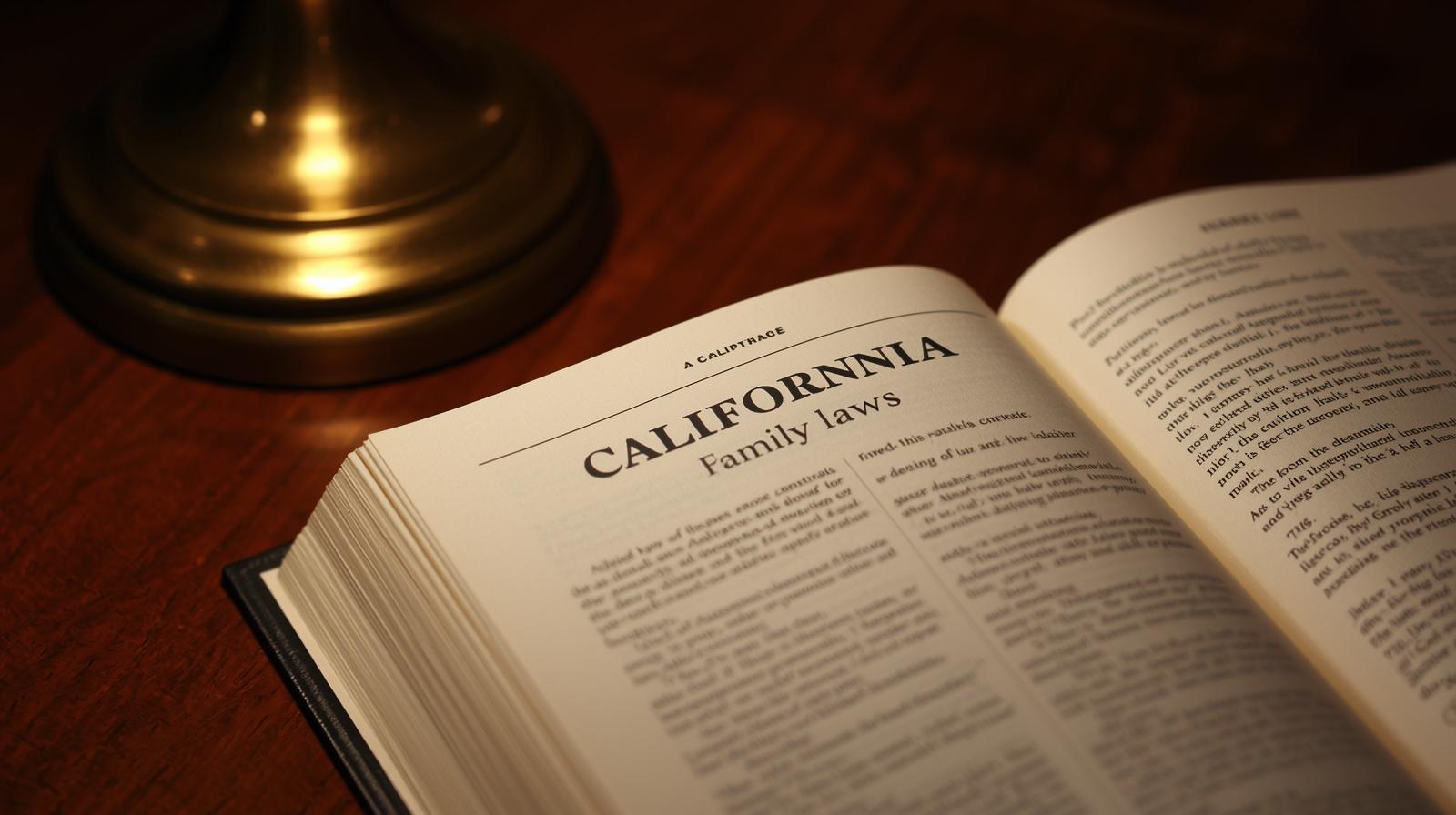

Understanding how California courts approach religion in custody cases can help reduce conflict and provide clarity for both parents.
The truth is, unless and until the U.S. Supreme Court decides this question, there’s no black and white answer that applies nationwide. Continue Reading
In California Family Law, a Child Custody Order is more than just a schedule; it is a legally binding mandate designed to protect the child’s stability and the parental rights of both parties.
When a co-parent willfully fails to follow that order, they commit a custody violation, creating an issue that must be addressed methodically.
Co-parenting under a California custody order works best when both parents follow the agreement consistently. But when one parent repeatedly ignores court-ordered schedules, undermines the other parent’s role, or violates clear terms of the parenting plan, documentation becomes essential. In California family law, evidence—not accusations—drives judicial decisions.
Properly documenting custody violations can help you:
These documents are the only evidence that can convince a California judge that the existing order is not working and must be changed to serve the best interests of the child.
This guide explains what a custody violation is, when you should document it, how to document it effectively, and how that documentation can be used to create change in California custody orders.
A custody violation occurs when a parent willfully and knowingly fails to comply with a clear and unambiguous term of the court-ordered parenting plan.
| Category | Examples of Violations |
| Visitation & Exchanges | Chronic Lateness: Regularly being significantly late (e.g., 30+ minutes) for pickups or drop-offs, disrupting the child’s routine. |
| Denial of Time: One parent deliberately prevents the other from having their scheduled visitation time. | |
| Communication | Interference: Deliberately withholding the child or technology to prevent court-ordered phone calls or virtual visitation. |
| Relocation | Moving with the child outside the court-ordered geographical area without providing proper advance notice or obtaining court/parental permission (Family Code $\S$ 3048). |
| Legal Decision-Making | Making unilateral decisions about the child’s health (e.g., major surgery), education (e.g., changing schools), or religious upbringing without consulting the co-parent, despite a Joint Legal Custody order. |
| Contempt of Court | Repeated, willful non-compliance with the order. This is a serious legal finding that can carry fines or even jail time. |
A judge distinguishes between a genuine, unavoidable mistake (e.g., an unpreventable car breakdown) and a willful pattern of disobedience or obstruction. Your documentation must prove the latter.
Even one serious violation can matter, but patterns carry the most legal weight.
You should begin documenting immediately when you notice a clear departure from the court order. However, you should only seek court intervention when the violations demonstrate a harmful pattern.
You should document every violation that:
Courts are far more likely to modify custody when you provide clear, objective, chronological evidence—not emotional summaries or vague allegations.
California courts encourage co-parents to resolve minor issues outside of court, often through co-parenting apps or mediation. Filing motions for every minor infraction can be viewed by the court as being litigious, which works against the goal of effective co-parenting.
You should consider returning to court only when the pattern of violations rises to the level of a “significant change in circumstances” that negatively impacts the child’s stability, emotional health, or relationship with one parent.
Documentation is one of the most powerful tools you have in a custody case.
Judges understand that parents disagree. What they need is:
Your documentation establishes credibility and reliability.
California courts focus on what benefits the child. Repeated violations may show:
Patterns matter more than isolated incidents.
Accurate documentation preserves:
If the other parent claims you’re the one violating, your records speak for you.
A judge may modify custody when violations:
Your records provide the foundation for such changes.
Not all documentation is equal. California courts prefer objective, non-emotional, factual records. Here’s how to build documentation that judges take seriously.
This is the backbone of your documentation.
Include:
Keep the tone neutral and factual.
Platforms may include:
Screenshots should show:
Avoid editing or cropping. Courts want full threads, not selected excerpts.
Visual timelines help courts understand patterns at a glance.
Include:
This is persuasive and easy to digest.
This might include:
Third-party records add reliability.
Show that you:
Courts appreciate a parent who demonstrates responsibility.
California is a two-party consent state. Do not make secret audio or video recordings unless legally permitted.
Your attorney can guide you on exceptions.
Improper documentation can undermine your credibility.
| Date & Time (Start/End) | Type of Violation | Specific Order Violated | Factual Description | Evidence (Attached) |
| 2025-11-05, 5:35 PM | Chronic Lateness (Pickup) | Para 2(b): Pickup at 5:00 PM on Tuesday. | Parent X arrived 35 minutes late. Child was visibly anxious. No call/text until 5:30 PM. | Text message from Parent X at 5:30 PM: “Traffic is bad, be there soon.” |
| 2025-11-10, 7:00 PM | Denial of Communication | Para 3(a): Parent Y shall facilitate a 7:00 PM video call. | Child did not answer. Parent X texted back at 7:45 PM saying child was “too busy with dinner.” Call missed. | Text message from Parent X at 7:45 PM. |
| 2025-11-15 | Unilateral Decision | Para 4(c): Joint Legal Custody requires mutual agreement on medical care. | Received email from school nurse stating Parent X scheduled child’s flu shot without consulting me, despite my prior written objection. | Email from school nurse confirming appointment/shot date. |
The court connects the pattern of violations to the harm caused to the child:
Your custody log, filled with objective, chronological, and verifiable entries, becomes the irrefutable evidence that the existing plan is creating a detrimental environment for the child. It transforms emotional frustration into a powerful legal argument for change.
Custody violations are stressful, harmful to children, and sometimes dangerous. Effective documentation protects:
In California, the parent who consistently follows the order, co-parents responsibly, and presents clear evidence is in the strongest legal position.
At Minella Law Group, we help parents review documentation, prepare evidence, and build strategic cases for enforcement or modification of custody orders.
📞 Call Minella Law Group today at 619-289-7948 to schedule a confidential consultation with one of our family law specialists. We’ll listen to your concerns, assess the situation, and create a clear strategy tailored to your goals.
📝 Prefer email? Fill out our online contact form and a member of our legal team will get in touch with you promptly.
*Disclaimer: This article is for informational purposes only and does not constitute legal advice. For personalized guidance on your case, contact a licensed California family law attorney
For individuals and couples who want to build a family, Assisted Reproduction Technology (ART) has opened doors that were unimaginable just a generation ago. California is one of the most advanced and supportive states in the country when it comes to fertility treatments, donor agreements, surrogacy, and parentage laws. Whether you are a heterosexual couple facing infertility, an LGBTQ+ couple planning a family, or a single parent by choice, ART provides multiple pathways to parenthood.
This blog provides a practical overview of the ART options available in California — including who they are for, why families choose them, and the legal considerations you must understand before moving forward.
ART refers to any medical procedure where eggs, sperm, or embryos are handled outside the body. It includes:
ART can be used alone or in combination, depending on the family’s medical, biological, or personal needs.
California is a national (and global) leader in ART because:
This makes California a preferred destination for those seeking fertility care.
These methods are often the first step in fertility treatment, relying on a functioning uterus and ovaries, and they are typically the least invasive and most cost-effective.
| Option | What is it? | Who is it for? | Why choose it? |
| Timed Intercourse (TI) | Using ultrasound and hormone monitoring to pinpoint ovulation, advising the couple to have intercourse on the most fertile days. | Heterosexual couples with unexplained or mild infertility, or those with infrequent ovulation. | Cost-effective and non-invasive. It optimizes conception chances by removing the guesswork, often before advancing to more complex treatments. |
| Ovulation Induction (OI) | Using oral medications (like Clomid or Letrozole) or injectable hormones to stimulate the ovaries to produce one or more mature eggs. | Women with irregular or absent ovulation (e.g., due to PCOS), and those with unexplained infertility. | Addresses a known problem (ovulatory dysfunction) with medication. Can be combined with TI or IUI. |
| Option | What is it? | Who is it for? | Why choose it? |
| Intrauterine Insemination (IUI) | Washed and concentrated sperm (from a partner or a donor) is placed directly into the uterus via a catheter during the precise window of ovulation. | Heterosexual Couples: Mild male factor infertility, cervical mucus issues, or unexplained infertility. Same-Sex Couples/Single Parents: Those using donor sperm (the most common path for lesbian and single parents). | It’s a relatively simple, in-office procedure that gives sperm a significant head-start, bypassing potential barriers in the cervix. It is less expensive and invasive than IVF. |
In Vitro Fertilization (IVF) is the most well-known and effective form of ART. It involves retrieving eggs and sperm and performing fertilization in a laboratory.
| Option | What is it? | Who is it for? | Why choose it? |
| Standard IVF | Eggs are retrieved after hormone stimulation, mixed with sperm in a dish, and allowed to fertilize naturally. The resulting embryo is then transferred to the uterus. | Heterosexual Couples: Severe male or female infertility (e.g., blocked fallopian tubes, severe endometriosis, low ovarian reserve), and multiple failed IUI cycles. | Highest success rates per cycle compared to IUI. Allows for the creation and freezing of multiple embryos for future use (family planning). |
| Intracytoplasmic Sperm Injection (ICSI) | A single, healthy sperm is injected directly into the center of a single egg. | Couples with severe male factor infertility (very low sperm count, poor motility, or poor morphology), or when using previously frozen eggs. | Guarantees fertilization when sperm is limited or unable to penetrate the egg on its own, maximizing the chance of creating a viable embryo. |
| Reciprocal IVF | One partner provides the egg (genetic material) for fertilization, and the resulting embryo is transferred into the other partner (gestational carrier). | Lesbian or Trans-Male Couples where both partners wish to share a biological role. | Deepens the emotional connection by allowing one partner to be the genetic parent and the other to carry the pregnancy. |
| Option | What is it? | Who is it for? | Why choose it? |
| Egg Freezing (Oocyte Cryopreservation) | Eggs are retrieved and frozen for later use. | Individuals delaying parenthood (social freezing), or those facing medical treatments (like chemotherapy) that could harm fertility (Oncofertility). | Preserves fertility at a younger age when egg quality is optimal, offering a proactive “insurance policy” against age-related decline. |
| Embryo Freezing | Fertilized embryos are frozen for later use. | Couples who undergo IVF and have viable embryos remaining after their fresh transfer. | Future family building. These frozen embryos (FET—Frozen Embryo Transfer) are often used for a second or third child without having to repeat the full IVF cycle. |
When a person or couple lacks the necessary gametes (egg or sperm) or the ability to carry a pregnancy, California’s progressive laws facilitate the use of third-party options.
| Option | What is it? | Who is it for? | Why choose it? |
| Donor Sperm | Sperm from an anonymous or known donor is used for IUI or IVF. | Single women, lesbian couples, or heterosexual couples with severe male factor infertility. | Provides the essential gamete when the intended male partner cannot provide sperm, allowing the female partner to carry the pregnancy. |
| Donor Egg | Eggs from an anonymous or known donor are fertilized and transferred. | Women with low ovarian reserve (e.g., advanced maternal age or premature ovarian failure) or genetic conditions they do not wish to pass on. | High success rates. Using eggs from a younger, screened donor dramatically increases the probability of a successful pregnancy. |
| Donor Embryo | An embryo created by one couple (who no longer needs it) is transferred to a recipient couple. | Couples where neither partner can provide viable gametes, who wish to experience pregnancy but prefer embryo adoption over using separate egg/sperm donors. | Cost-effective alternative to using both donor egg and donor sperm, often offering a faster path to transfer. |
| Option | What is it? | Who is it for? | Why choose it? |
| Gestational Surrogacy | An embryo (created from intended parents’ or donors’ gametes) is transferred into a Gestational Carrier (GC), who has no genetic link to the child. | Individuals or couples who cannot safely carry a pregnancy (e.g., uterine factor infertility, history of recurring loss, specific health risks) or male same-sex couples and single men. | California is surrogacy-friendly, providing clear legal frameworks (pre-birth orders) that establish the intended parents as the sole legal parents from birth, providing maximum legal security. |
What makes California a particularly secure place for all forms of ART is its strong legal emphasis on intent. Under California law, for arrangements involving donors, written contracts and agreements are paramount.
The state offers one of the most advanced and supportive ART environments in the world — medically and legally. But assisted reproduction involves more than medical decisions. Legal planning is essential to ensure parental rights are secure, donors have waived rights, and surrogacy arrangements are enforceable.
If you’re considering ART in California, contact Minella Law Group for a confidential consultation. We will help you understand your options and secure your parental rights, we guide families through:
Every family deserves clarity and legal protection — before conception, during pregnancy, and after birth.
📞 Call Minella Law Group today at 619-289-7948 to schedule a confidential consultation with one of our family law specialists. We’ll listen to your concerns, assess the situation, and create a clear strategy tailored to your goals.
📝 Prefer email? Fill out our online contact form and a member of our legal team will get in touch with you promptly.
*Disclaimer: This article is for informational purposes only and does not constitute legal advice. For personalized guidance on your case, contact a licensed California family law attorney








